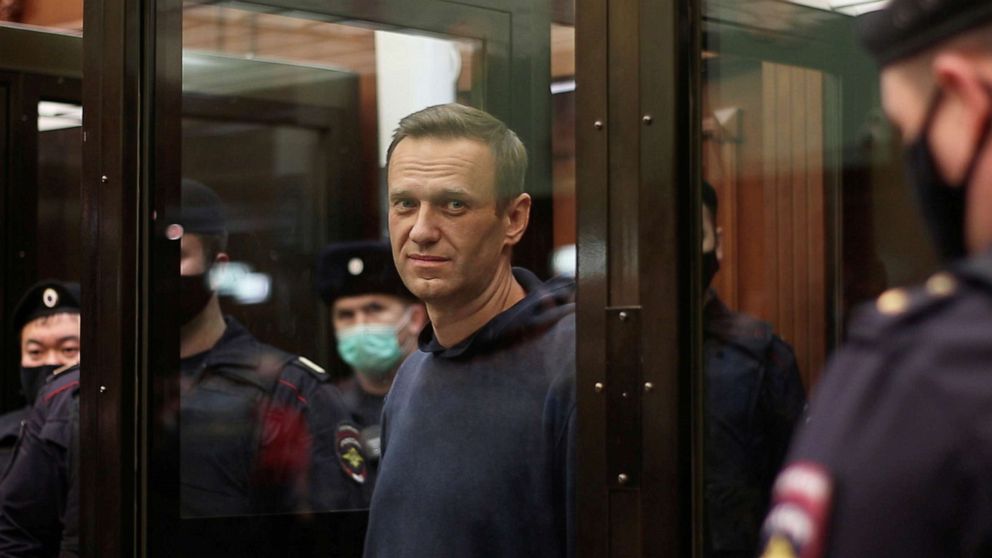Who Is Alexei Navalny?
Alexei Navalny is Russia’s most prominent opposition figure and a longtime critic of President Vladimir Putin. Over the years, he gained international attention for his anti-corruption investigations and political activism. Navalny’s efforts to expose government misconduct turned him into a powerful symbol of resistance in modern-day Russia.
In August 2020, Navalny was poisoned with a military-grade nerve agent. After receiving treatment in Germany, he returned to Russia in January 2021, where authorities promptly arrested him for violating the terms of a suspended sentence from a 2014 fraud case.
The Alleged Parole Violation
Upon his return, Russian authorities accused Navalny of failing to meet parole obligations stemming from the previous conviction. According to officials, Navalny missed required check-ins while recovering abroad.
Navalny’s defense team argued that the charges were politically motivated and that he was physically unable to comply due to medical treatment in Germany. Despite their efforts, the court found him guilty of breaching parole terms.
The Court’s Verdict
In early 2021, a Moscow court ruled that Navalny must serve two years and eight months in a penal colony, replacing his suspended sentence with real prison time. The judge claimed that Navalny had “systematically and repeatedly” failed to meet the terms of his probation.
The court’s decision sparked emotional scenes. Navalny calmly addressed the court and called the ruling an attempt to silence him. He referred to the case as “fabricated” and stated that truth and justice would ultimately prevail.
What Is a Russian Penal Colony?
A Russian penal colony is different from a traditional prison. It’s a semi-open facility where inmates perform forced labor during the day. Detainees often work in textile factories, agriculture, or construction under strict surveillance.
Former inmates and human rights activists have described harsh conditions, including poor healthcare, limited communication rights, and excessive discipline. The sentencing of a high-profile political figure like Navalny to such a facility raised serious concerns among rights groups and foreign observers.
Navalny’s Reaction to the Sentence
Navalny, ever defiant, remained composed during the hearing. He used his platform in court to deliver a strong message against authoritarian rule, stating that “the only thing necessary for the triumph of evil is for good people to do nothing.”
He thanked his supporters and continued to call for peaceful resistance. Navalny’s ability to stay calm and speak out, even in the face of imprisonment, only strengthened his image among supporters at home and abroad.
Public and Political Response Inside Russia
Following the verdict, protests erupted in multiple cities across Russia. Thousands of demonstrators took to the streets demanding his release and denouncing government repression.
Despite heavy police presence and mass arrests, the protests revealed widespread discontent among Russians—especially the youth. Navalny’s sentencing galvanized opposition movements and highlighted deep fractures within the country’s political landscape.
International Reactions
Navalny’s imprisonment was condemned by many global leaders. Governments across Europe and North America called the decision “unjust” and “politically driven.” Some nations considered new sanctions and diplomatic measures in response to what they viewed as a violation of human rights and democratic principles.
The ruling also deepened tensions between Russia and the West, further complicating diplomatic relations.
What’s Next for Navalny?
As Navalny begins his sentence in the penal colony, his future remains uncertain. His team continues to publish investigations and mobilize supporters online. Meanwhile, his health and safety have become a major concern for his followers and international rights groups.
Observers believe that this sentence may not be the end of his legal battles. Additional charges have been filed, possibly extending his imprisonment. Despite the risks, Navalny’s resolve appears unshaken.
The Broader Implications
This case is more than just a legal issue—it’s a defining moment for Russia’s political future. It has turned Navalny into a global symbol of resistance and sparked new questions about freedom, justice, and political dissent in Russia.
For many Russians, especially younger generations, Navalny represents hope for change. His sentencing, rather than silencing the movement, may have energized it even more.
Conclusion
The sentencing of Alexei Navalny to a prison camp marks a pivotal moment in Russian politics. While the government may have hoped to eliminate a prominent critic, it seems to have done the opposite—amplifying his voice and drawing global attention. Navalny’s case continues to be a symbol of courage and resilience in the face of authoritarian pressure.

